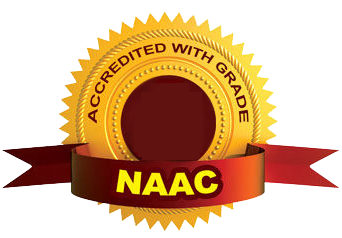Participation in the Skill Development Training Programme on "Good Cultivation Practices & Post-Harvest Processing of Some Important Horticultural Crops of Meghalaya"
This one-month skill development programme was organized by Biotech Park, Lucknow; Directorate of Horticulture, Government of Meghalaya& Advanced Level Institutional Biotech Hub, Lady Keane College, Shillong; and sponsored by the Institute of Bioresources& Sustainable Development (IBSD), Imphal, Department of Biotechnology, Government of India, from 15thNovember- 14thDecember, 2018for selectedBSc 6th Semester students of Lady Keane College, Shillong. Our Department was represented by five students in the form of Baniewkorlang War Nongbri, Doreen Dominica Marbaniang, PhidarishishaMylliemngap, PrecyciaNongkhlaw, RisashishaDiengdoh. The objective of the programme was to provide necessary entrepreneurial know-how to the trainees as a means for creating employment opportunities with the thrust being on good cultivation practices, post-harvest processing and value addition of a few important locally available horticultural crops of Meghalaya.The aspects covered during the training were post-harvest processing of fruits like orange, plum,sohiong, strawberry,pineapple,carambola, sohphie, gooseberries, and tea; then good cultivation practices and value addition of mushroom, ginger, and vegetables like potato, cauliflower, cabbage, soybeans, andornamental flowers like orchids, wild-ferns, gerbera, and liliums.
During the deliberations the resource persons highlighted the unemployment scenario that many of the youths in India today are facing in spite of being educated. One of the major causes for it is the rising of population number and so in order to tide over this problem entrepreneurship is one of the thrust areas which require attention. Entrepreneurship is something that can be found almost everywhere nowadays. Every profession has an entrepreneurial sector. Agriculture is most certainly very strong in that particular division, as the backbone of the country's economy. Entrepreneurship and Agriculture are utterly connected and have a lot to offer to each other. The term "entrepreneur" is often interchangeably used with business owner, starter, someone who is self-employed, sole-trader, or farmer. The economic development and improvement in livelihood conditions in India are grossly dependent on agriculture. On another count, value-added agriculture entails changing raw agricultural products into something new through processing, cooling, drying, extraction that differentiates the product from the original commodity, which is also one of the great opportunity for entrepreneurs likein the making of jam and jelly from different fruits like pineapple, plums, sohiong; making of fruit squash, ale, RTS (ready-to-serve) drinks and wines from pineapple, passion fruit,sohiong,goose berries,carambola; then pickle making from bamboo shoots, radishes, goose-berries, carrots, sohphie, and mushrooms.
Different preservatives are also recommended to be added to any processed food to prevent spoilage, rancidity and contamination and they are classified as belonging to either :
- Class-1 preservative: salts, sugar, vegetable oil etc.
- Class-2 preservative: sorbates, sulphite, sodium benzoate etc.
During processing of any products proper sterilization is a very important step to prevent contamination. Hence, cans, bottles or any packaging jars are properly sterilised before the transfer of any food product.
During the training, the participants also had the opportunity to visit a Government of Meghalaya run potato farm in Upper Shillong, tea garden and ginger cultivation area, strawberry farm and paddy field at Umsning, and vegetable cultivation area run byKrishiVigyan Kendra (KVK),Ri-Bhoi District at Indian Council of Agricultural Research (ICAR), Umiam, Meghalaya.
The feedback received from the student participants was positive and the participants felt that the training objectives were largely met. Even some of the doubts which the participants had could be successfully clarified by the resource persons. The participants hoped that such valuable trainings ought to be organized again in the near future. Written comments indicate that the participants appreciated to have got to be a part of this learning opportunity.



Share this page